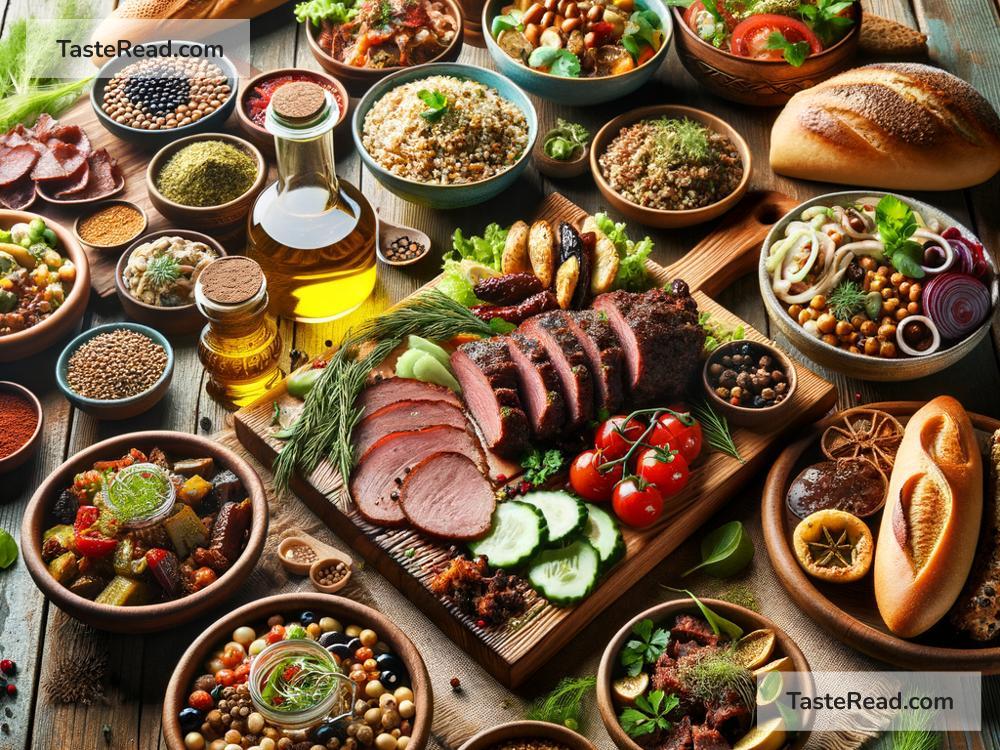Tracing the Influence of the Crusades on Mediterranean Cuisine
The Crusades, a series of religious wars between Christians and Muslims, lasted for almost 200 years, starting in the late 11th century. These wars were not only fought with swords and shields but also with ingredients and recipes. As Crusaders ventured into the Middle East, they stumbled upon a treasure trove of exotic flavors, spices, and cooking techniques. Upon returning home, they brought with them not just tales of their battles but also culinary secrets that would eventually weave their way into the fabric of Mediterranean cuisine.
A Fusion of Flavors
The Mediterranean region, known for its diverse and flavorful cuisine, owes a portion of its gastronomic richness to the Crusades. This period of conflict and conquest facilitated a cultural exchange that went beyond the battlefield, making its way into kitchens and dining tables across Europe, particularly in countries like Italy, Spain, France, and Greece.
Spices and Sugar: A Sweet Revolution
Before the Crusades, European food was relatively bland, leaning heavily on local herbs for flavor. However, the Crusaders’ exposure to Middle Eastern cuisine introduced them to a whole new world of spices such as cinnamon, nutmeg, cloves, and saffron. These were not just used for cooking but also for preserving food and masking the taste of meat that was past its prime – a common issue before the advent of modern refrigeration.
One of the most significant culinary imports was sugar. While sugar cane was indigenous to parts of Asia, it was the Arabic influence, combined with the Crusaders’ return, that introduced sugar to the Mediterranean in a big way. This led to the proliferation of sweet dishes and desserts in the region, revolutionizing palates and setting the stage for what we now recognize as a hallmark of Mediterranean and European cuisine.
Rice, Pasta, and Citrus: Staples of Today’s Tables
Rice and pasta, staples of Mediterranean cuisine today, were also popularized due to the Crusaders. Though pasta’s origins are debated, it’s widely accepted that the Crusaders played a role in its widespread acceptance in Europe, inspired by the noodles and similar dishes they encountered in the East.
Similarly, rice, which was cultivated in parts of the Middle East and Asia, found a welcoming home in the Mediterranean, particularly in Italy and Spain. Paella and risotto, popular dishes in these countries, can trace their lineage back to the rice cultivation that flourished due to this cross-cultural exchange.
Citrus fruits, like lemons and oranges, also owe their popularity in the Mediterranean to the Crusades. Although citrus trees were indigenous to Asia, they were cultivated extensively in the Middle East. The Crusaders, enchanted by the tangy and refreshing taste of these fruits, brought them back to Europe, where they became a staple ingredient, used in everything from cooking to medicine.
A Lasting Legacy
The influence of the Crusades on Mediterranean cuisine is a profound testament to how history, culture, and food are deeply interconnected. The wars might have been fought over religious and territorial differences, but the unintended consequence was a culinary fusion that enriched the world’s gastronomic heritage.
Today, when we sit down to a meal featuring a fragrant risotto, a citrusy salad, or a piece of spiced cake, we are, in a way, partaking in a legacy left by the Crusaders. These dishes, which have become emblematic of Mediterranean cuisine, are a celebration of the region’s ability to absorb and adapt influences from around the world.
Conclusion
The Crusades, though marked by conflict, played a pivotal role in the culinary evolution of the Mediterranean. The exchange of ingredients, techniques, and ideas during this period paved the way for dishes that continue to delight palates worldwide. As we explore the rich tapestry of Mediterranean cuisine, it’s fascinating to consider how history has shaped the flavors and ingredients that we now take for granted. The culinary influence of the Crusades serves as a delicious reminder of how, even in times of strife, humanity can find common ground in the universal language of food.


